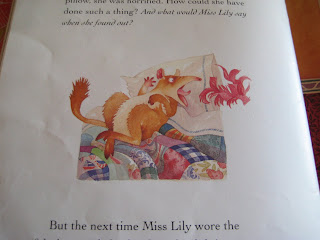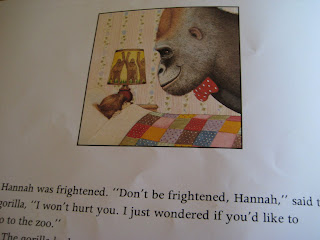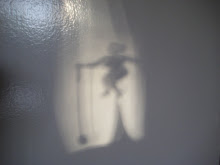Thursday, April 24, 2008
The House of Mirth - Edith Wharton
Quilt in progress
Tuesday, April 22, 2008
Miss Lily's Fabulous Pink Feather Boa


Up north , where the hibiscus flowers were as big as dinner plates and the trees blossomed with white cockatoos...
Gorilla - Anthony Brown


2002 Walker Books
Sunday, April 20, 2008
Judith Levine (2006) Not Buying It. My Year without Shopping.
Free Press. New York
A quick read from the non-fiction section. As a ‘professional organic’ I could identify with the quest for self-fulfilment with a conscience. For a year, Judith and partner Paul eschewed buying all luxuries. This ban excludes good food.
The year seemed to pass by without too many temptations: movies, restaurant meals and clothes. Judith was tempted outside the pledge a couple of times; clothes both times. She came away with a refreshed palette for worldly goods and an understanding of her vulnerabilities. She had a lot of free fun in the process. Street art, demonstrations, libraries. I liked how she an atheist Jew and Paul a lapsed Catholic find themselves uplifted at a marginally pagan-like church service during the holiday season.
Judith and Paul live half the year in Brooklyn and the other in Vermont. Shying away from the hard line of evils of consumer culture Judith kept a diary of her feelings and justifications, these ranged from anxiety, frustration, boredom and contentment. Leaving off on a note of quietened appetite and a more nuanced palette.
Judith picked at the threads of fulfilment, identity and the joys of fine-tuning your identity through the filthy lucre of shopping. Judith acknowledges that her desires run the way of bohemia rather than mainstream, nevertheless the urges are the same. Giving money to a friend’s poetry reading is recognised as discretionary spending, so is desiring the latest released books.

